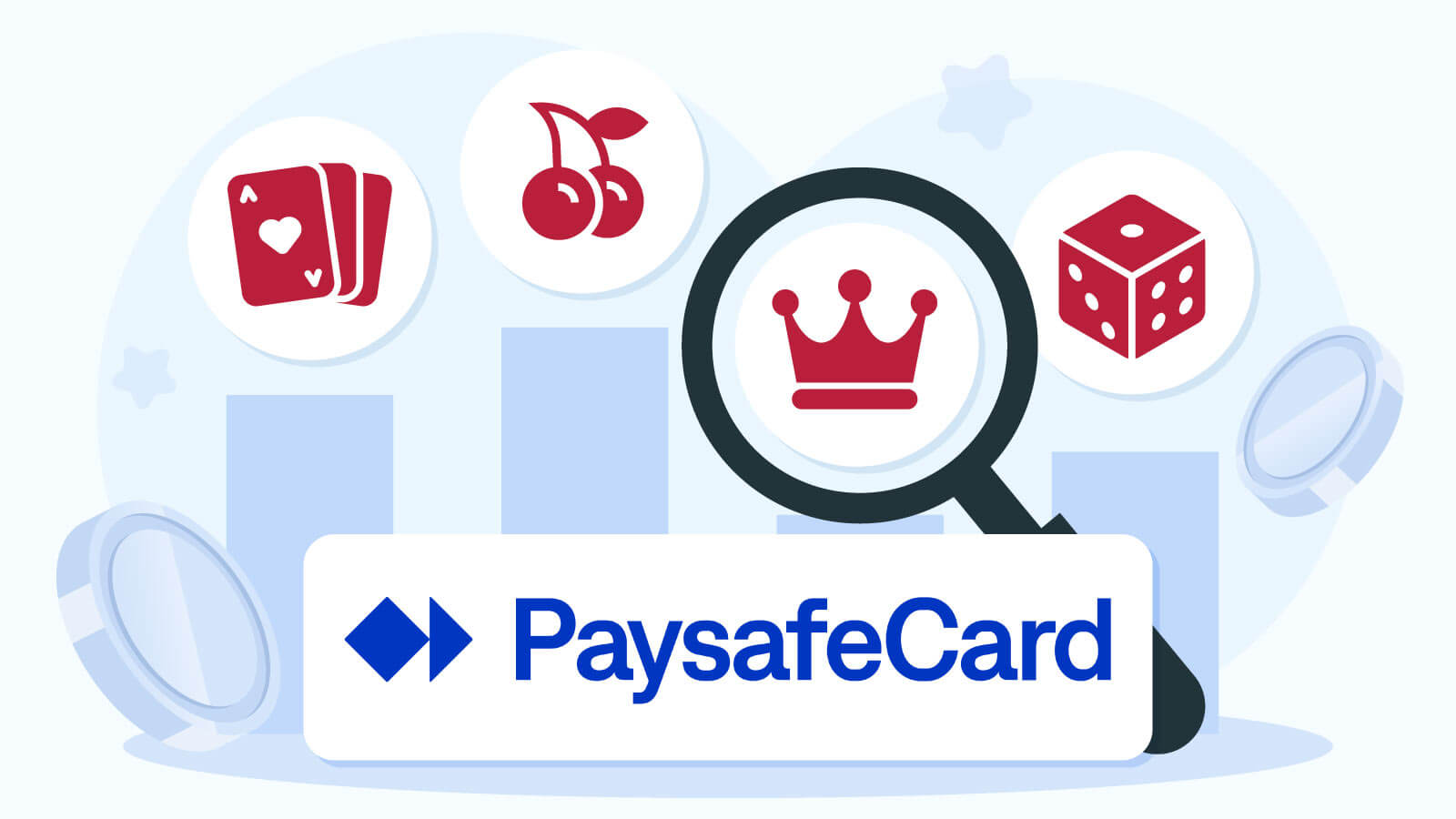Contents
Poker is one of the most popular and exciting card games in the world, combining strategy, psychology, and a bit of luck. Whether you’re playing casually with friends or looking to join online tables, learning the basics is the first step to success. If you've ever wondered how to play poker for beginners, you're in the right place.
This guide will walk you through everything you need to know—from understanding hand rankings and betting rules to choosing the right poker variant. By the end, you'll have the confidence to sit at a table (virtual or real) and start playing like a pro. Let's dive into the world of poker and discover how to play poker for beginners the smart and simple way.
🎯 Introduction to Poker
Poker has grown into a global phenomenon, and thanks to the internet, it’s more accessible than ever. If you're interested in learning how to play online poker in Australia, you're part of a growing community of players enjoying everything from friendly games to high-stakes tournaments—all from the comfort of home.
Online poker in Australia is fully legal when played on licensed offshore platforms, and it offers a range of game types, stakes, and formats for every skill level. Whether you're a complete beginner or transitioning from home games to digital tables, understanding the foundations of poker will give you a huge advantage.
🤔 What Is Poker?
Before diving into strategies and hands, it’s essential to understand what poker is and how to play poker in its most basic form. Poker is a card game where players compete to form the best hand or convince others they have it—often leading opponents to fold. It’s a mix of skill, bluffing, and calculated risk-taking, which is why it’s such a thrilling game to master.
For new players, learning poker terms for beginners is just as important as learning the rules. Familiarizing yourself with basic vocabulary helps you follow gameplay, understand tutorials, and communicate effectively at the table.
Here’s a quick reference table with essential poker terms for beginners:
| Term | Definition |
| Blinds | Forced bets posted before the cards are dealt |
| Fold | To give up your hand and forfeit the round |
| Call | To match the current bet made by another player |
| Raise | To increase the current bet |
| Check | To pass the action to the next player without betting |
| Pot | The total amount of chips bet during a hand |
| Flop | The first three community cards dealt face-up in Hold’em and Omaha |
| Turn | The fourth community card |
| River | The fifth and final community card |
| All-in | Betting all of your remaining chips |
| Showdown | When players reveal their hands to determine the winner after the final bet |
🧩 Main Types of Poker
When you're just starting to explore how to play poker, one of the first things you'll notice is that there are several different versions of the game. Each variant has its own set of poker rules for beginners, and choosing the right one can help you learn faster and enjoy the game more.
From community card games like Texas Hold’Em to draw and stud variations, every type of poker offers something unique. Below are the most common and beginner-friendly types of poker you should know about.
♠️ Texas Hold’Em
Texas Hold’Em is the most popular poker variant in the world, especially for those learning how to play poker for the first time. It's a community card game where players use two private cards (hole cards) and five shared cards to make the best five-card hand. It's ideal poker for beginners due to its simple structure and wide availability online.
Once you understand hand rankings and betting rounds, Texas Hold’Em becomes both accessible and strategic. It's the go-to variant in most poker tournaments and home games.
| Feature | Detail |
| Cards per player | 2 (hole cards) |
| Community cards | 5 (flop, turn, river) |
| Max players | Up to 10 |
| Betting rounds | 4 |
♦️ Omaha
If you're ready to take the next step in how to play poker, Omaha offers a more complex but exciting option. Similar to Texas Hold’Em, it's a community card game—but each player is dealt four hole cards and must use exactly two of them, plus three community cards, to make a hand.
Omaha is often recommended for players who want to expand their knowledge and learn how to play Omaha poker with more advanced hand possibilities.
| Feature | Detail |
| Cards per player | 4 (use exactly 2) |
| Community cards | 5 |
| Max players | Up to 10 |
| Betting rounds | 4 |
♥️ Seven-Card Stud
Before Texas Hold’Em rose to dominance, Seven-Card Stud was the most common form of the game. If you're looking into how to play poker from a traditional angle, this is a great place to start. There's no flop or shared cards—each player receives a mix of face-up and face-down cards.
This variant is ideal for players asking poker how to play in a slower, more deliberate format where memory and attention matter.
| Feature | Detail |
| Cards per player | 7 total (3 down, 4 up) |
| Community cards | None |
| Max players | Up to 8 |
| Betting rounds | 5 |
🃏 Five-Card Draw
Five-Card Draw is the simplest and most classic form for those who want to learn how to play poker without complex rules. Each player gets five cards and can exchange (draw) some of them to improve their hand. It’s a great version for casual games and for truly learning the basics of how to play poker.
It emphasizes hand selection and bluffing more than community interaction, making it ideal for complete beginners.
| Feature | Detail |
| Cards per player | 5 |
| Draw phase | Yes (discard and redraw) |
| Max players | Up to 6 |
| Betting rounds | 2 |
🌐 Live and Online Poker
In today’s digital world, many players start by learning how to play poker online before ever sitting at a real table. Online platforms allow beginners to practice at low stakes, play at any time, and access tutorials and tools to improve. Whether you prefer casual games or live dealer tables, online poker offers unmatched convenience.
If you're new and want to know how to play poker in modern formats, online poker is your gateway to learning quickly and comfortably—especially with features like auto-fold, hand histories, and on-screen guides.
| Feature | Detail |
| Devices supported | PC, Mobile, Tablet |
| Game formats | Cash Games, Tournaments, SNG |
| Skill levels | Beginner to Pro |
| Available 24/7 | Yes |
📘 Basic Rules of Poker
Understanding the basic rules is the first step in mastering how to play poker for beginners. These foundational principles apply across most poker variants and help build the confidence needed to sit at any table.
From the number of cards used to how hands are ranked and bets are placed, poker is a structured game that becomes easier with practice. This section will guide you through the essentials every beginner should know.
🎴 The Pack
Poker is typically played with a standard 52-card deck, which is shuffled before each game. Jokers are rarely used, except in certain home games or specific variations. Whether you’re playing live or online, the number of players at the table can influence the speed and style of the game.
For those learning how to play online poker in Australia, it's important to note that most reputable poker platforms follow international standards. These include using random number generators (RNGs) to shuffle cards fairly, ensuring that digital games remain as authentic as real-life tables.
🔢 Card Values and Hand Rankings
When learning how to play poker, one of the first things to understand is how poker hands are ranked. This is essential for knowing when you’re holding a strong hand—or when it might be time to fold.
For newcomers, it helps to study key poker terms for beginners, especially those related to hand strength. Here's a simplified list of the most common poker hands, ranked from highest to lowest:
- Royal Flush – A♠ K♠ Q♠ J♠ 10♠
- Straight Flush – Five cards in sequence, all same suit
- Four of a Kind – Four cards of the same rank
- Full House – Three of a kind + one pair
- Flush – Any five cards of the same suit
- Straight – Five cards in sequence, any suits
- Three of a Kind – Three cards of the same rank
- Two Pair – Two different pairs
- One Pair – Two cards of the same rank
- High Card – None of the above, highest card wins
Knowing these rankings helps you recognize valuable hands during play.
💰 Betting Mechanics
One of the most exciting aspects of learning how to play poker is mastering how betting works. Poker is not just about the cards—it's about how you use them, and betting is your main tool for influencing the game.
For those studying poker rules for beginners, it’s important to know that betting happens in rounds. Each player gets the chance to check, call, raise, or fold depending on the situation. The amount you bet can change based on the game type (e.g., No Limit, Pot Limit).
🧠 Knowing When to Bet
Understanding how to play poker includes learning when and why to place your bets. It’s not always about having the best hand—it’s often about reading the situation and your opponents.
For poker for beginners, this means watching for betting patterns, managing your chip stack wisely, and knowing when to be aggressive or conservative. Bluffing and value betting are powerful strategies, but they only work if you time them right.
🪙 Chips and The Kitty
In poker how to play guides, chips are a fundamental element that represent money during the game. Instead of using cash directly, players use chips of various denominations to place bets, raises, and calls. This keeps the game organized and allows for smooth gameplay, especially in tournaments or casino settings.
The "kitty" is a shared pool of chips or money collected from players, usually through low-value contributions during each hand. In casual home games, the kitty might be used for buying new decks or snacks, but in some cases, it can also be awarded as a bonus pot.
🏦 The Banker Role
One important aspect of understanding how to play poker is knowing who handles the chips and enforces the rules. This is often the banker—a person or system responsible for managing chip distribution and overseeing bets.
In digital games, especially when you learn how to play poker online, the role of the banker is managed automatically by the platform. The software calculates pots, bets, and payouts, so players can focus on decision-making rather than logistics.
🚦 Betting Limits Explained
A key part of how to play poker is understanding the different betting structures. These determine how much players can bet or raise during a hand. If you're trying to learn how to play poker, knowing the difference between limit types is essential for choosing the right game for your style and experience level.
Here are the four most common betting formats:
- Fixed Limit
- Pot Limit
- No Limit
- Table Stakes
📌 Fixed Limit
In how to play poker for beginners tutorials, fixed limit games are often recommended. This structure limits how much a player can bet or raise at any time. For example, in a $2/$4 game, all bets in the first two rounds must be $2, and the last two rounds $4.
This limit system helps control losses, making it great for those just starting out.
🪙 Pot Limit
For those exploring how to play online poker in Australia, pot limit games strike a balance between safety and freedom. In this format, a player can bet or raise up to the total amount currently in the pot. It encourages strategic betting without the swing of full no-limit games.
Pot limit is especially common in Omaha poker, where hand strengths run high and pots grow quickly.
📍 Table Stakes
When learning how to play poker, you'll come across the term "table stakes" in most settings. It means players can only bet the chips they have on the table at the start of the hand. They can’t reach into their wallet or add more during the hand.
This rule is often included in poker terms for beginners because it ensures fairness and prevents wealthier players from dominating by adding unlimited chips mid-hand.
💸 No Limit
One of the most exciting formats covered in how to play poker and poker rules for beginners is no-limit poker. As the name suggests, there’s no cap on how much a player can bet or raise at any time. This adds a dramatic and high-risk element to the game.
No-limit Texas Hold’Em is the format used in most professional tournaments, including the World Series of Poker.
🔁 Limits on Raises
In any game, especially when you're learning how to play poker or looking into poker for beginners, you’ll need to understand rules on how often and how much you can raise.
Some games limit the number of raises per round (e.g., three raises max), while others allow unlimited raises. Knowing these rules helps you avoid penalties and make better strategic choices during betting rounds.
🎭 Types of Poker Games
If you're exploring poker how to play, it's essential to understand that poker isn’t just one game—it’s a whole family of related games. Each type of poker has unique rules, structures, and strategies, but they all share common fundamentals like hand rankings and betting rounds.
Here’s a comparison of the most relevant types of poker games for beginners:
| Type | Community Cards | Hidden Cards | Card Exchange | Skill Level |
| Draw Poker | ❌ | ✅ | ✅ | Beginner |
| Stud Poker | ❌ | ✅ | ❌ | Intermediate |
| Dealer’s Choice | Varies | Varies | Varies | Mixed |
👥 Draw Poker
If you’re just beginning to learn how to play poker online, Draw Poker is one of the most straightforward variants to try. In this version, players are dealt a complete hand and then have the opportunity to discard and draw new cards to improve it.
It's a great option on online platforms for practicing card evaluation and bluffing in a simple format without shared community cards.
🎛️ Stud Poker
When you want to learn how to play poker with more structure and visibility, Stud Poker is a strong choice. In this format, players receive a combination of face-up and face-down cards over several betting rounds—there’s no drawing or shared cards involved.
Stud games require careful observation of opponents’ visible cards and memory of what's been played, making them ideal for players looking to develop deeper skills and concentration.
🎲 Dealer’s Choice
Dealer’s Choice is a fun and flexible option in how to play poker for beginners guides. In this format, each dealer chooses the type of poker game to be played for their turn—this could be Texas Hold’Em, Omaha, Stud, or even a homegrown variant.
It’s perfect for casual home games and learning multiple forms of poker in one sitting. For beginners, it’s a creative way to explore what you enjoy most without committing to just one format.
🃏 Wild Cards and Special Cards
For players exploring how to play online poker in Australia, understanding wild cards and special cards can add a unique twist to the game. While not always used in standard tournament formats, these cards are popular in home games and casual online variants.
Wild cards can represent any card the player chooses, increasing the chances of stronger hands. Below is a quick overview of commonly used wild and special cards in poker:
| Card Type | Description | Common Use Case |
| Joker | Acts as a wild card for any rank or suit | Home games, wild variants |
| Bug | Limited wild card—usually only as an Ace or to complete a straight/flush | Some online variants |
| Deuces (2s) | All 2s count as wild cards | “Deuces Wild” poker |
| One-Eyed Cards | Jack of Spades/Hearts (depicted in profile) | Used in wild card games |
| Low Hole Card | Lowest hidden card triggers special conditions | Stud games, Dealer’s Choice |
🃟 The Joker
The Joker is the most well-known wild card and often appears in casual games or specific wild formats. For those learning how to play poker, understanding how the Joker works is essential when it's in play.
In many poker terms for beginners guides, the Joker is defined as a fully wild card—meaning it can stand in for any card needed to complete a hand, such as a straight or flush. However, not all games use Jokers, so be sure to check the rules before you start.
🐞 The Bug
The Bug is a more restricted wild card than the Joker. It typically acts as an Ace, but can also be used to complete a straight or flush. If you're studying how to play poker, especially in more advanced or mixed games, you'll likely encounter the bug in some form.
This card is often mentioned in poker rules for beginners because it introduces the concept of conditional wildness—a useful concept when moving beyond basic poker games.
✌️ Deuces
In many wild card formats, deuces (2s) are fully wild and can represent any card. Learning how to use them effectively is key when figuring out how to play poker with special rules. For example, in “Deuces Wild” video poker, all 2s are wild, creating frequent high-ranking hands.
For poker for beginners, Deuces Wild games are exciting and fast-paced, but they also require awareness of how wild cards can impact hand strength and rankings.
👁️ One-Eyed Cards
One-eyed cards are a quirky but fun element in poker how to play discussions, especially in home games. These refer to the Jack of Spades and Jack of Hearts, both traditionally illustrated in profile (showing only one eye).
In some home or Dealer’s Choice games, one-eyed Jacks are declared wild, adding randomness and excitement. While not used in official formats, they’re a good example of how poker can be customized for entertainment.
🔽 Low Hole Card
In certain Stud or Dealer’s Choice games, the low hole card (the lowest face-down card) can trigger a specific action—such as forcing that player to bet first. If you're learning how to play poker online, you might run into this rule in custom table setups or live-hosted games.
It’s a simple but interesting mechanic that encourages players to pay close attention to the cards dealt, both face-up and face-down.
⚖️ Laws and Poker Etiquette
As you learn how to play poker, it's important to understand that the game isn’t just about rules—it’s also about respect, fairness, and proper behavior at the table. Poker etiquette includes a set of unwritten laws that help ensure smooth gameplay and a positive experience for everyone involved.
Whether you're playing in a casino, online room, or home game, being polite, acting in turn, and not revealing your cards prematurely are all considered good etiquette. Understanding both the legal and social expectations is essential as you learn how to play poker in more serious environments.
⏳ Time Limits per Move
One common feature in most poker games—especially online—is the use of time limits for decision-making. When you're starting out and discovering how to play poker for beginners, managing your time well is crucial.
Time limits keep the game moving and prevent unnecessary delays. Online poker platforms automatically enforce them, while live games may rely on a dealer or house rules to speed things up.
Here are some basic time-related etiquette tips:
- ⏱ Don’t take too long on every hand
- 🧍♂️ Be ready to act when it’s your turn
- 🤐 Avoid “slow rolling” (delaying a clear winning hand reveal)
- 🧠 Use your time wisely in big decisions—but not every hand
- 🔄 Don’t stall the game intentionally to distract others
Mastering timing and etiquette will make you a more respected and confident player as you grow.
🕹️ Live Poker Online at Golden Reels Casino
If you're interested in how to play poker online, live dealer poker is one of the most exciting and realistic formats available. Combining the convenience of online access with the atmosphere of a real casino, live poker offers an engaging way to sharpen your skills in real-time.
Golden Reels Casino makes it easy for beginners and experienced players alike to join live poker tables, chat with dealers, and compete against others from around the world—all without leaving home.
🏠 About Golden Reels Casino
As you learn how to play poker, choosing the right platform is key. Golden Reels Casino is an established online gaming site offering a variety of poker formats, including live games with professional dealers. It’s known for fast payouts, strong security, and user-friendly navigation.
Whether you're playing for fun or real money, Golden Reels provides the tools and environment to help you improve your game safely and enjoyably.
Golden Reels Casino Overview:
| Feature | Details |
| 🎰 Games Offered | Poker, Slots, Roulette, Blackjack |
| 🃏 Poker Formats | Live Dealer, RNG, Tournaments |
| 💳 Payment Methods | Visa, Mastercard, Crypto, eWallets |
| 📱 Platform Access | Desktop & Mobile |
| 🎁 Welcome Bonus | 100% + Free Spins |
| 🔐 License | Curacao |
📺 What Is Live Poker and How It Works
Understanding how to play poker for beginners includes exploring live poker games, which are streamed in real-time from a professional studio or casino. These games feature a live dealer who shuffles and deals physical cards, while players place bets through an online interface.
Live poker blends the authenticity of traditional poker with the convenience of online gaming, making it an ideal option for those who want a more immersive experience.
🧑💻 How to Start Playing Live Poker Online
For those learning how to play online poker in Australia, getting started at Golden Reels is simple. All you need is an internet connection and a device—no downloads required. After registering, you can choose a live poker table that suits your budget and experience level.
Once you're seated, you'll see a real-time video feed of the dealer and have controls to bet, fold, raise, or chat. It's the perfect way to gain experience with real opponents without traveling to a casino.
🎯 Tips for Live Poker Beginners
If you're figuring out how to play poker for beginners, live games can feel intimidating at first. But with a few practical tips, you'll feel comfortable in no time:
- 👀 Watch a few games before joining
- 💬 Use the chat feature respectfully
- 💰 Start with low-stakes tables
- 📖 Learn the rules of the specific poker variant in advance
- 🧠 Stay focused and avoid distractions
By following these tips, you can build confidence and enjoy the live poker experience more fully.
🎁 Bonuses and Promotions
When exploring how to play online poker in Australia, it’s smart to take advantage of the many bonuses offered by Golden Reels. These can give you extra funds or free play to extend your gaming time.
Common bonuses include:
- 🎁 Welcome Bonus (deposit match)
- 🔄 Reload Bonuses for returning players
- 🆓 Free Spins and Poker Chips
- 🏆 Tournament Entry Bonuses
- 🎯 Cashback on losses
Always read the terms and conditions before claiming a bonus.
🔐 Security, Fairness & Responsible Gaming
Any guide on how to play poker for beginners should emphasize playing safely. Golden Reels Casino uses encryption technology to protect your data and ensures game fairness with certified RNGs and live dealer monitoring.
Additionally, tools like deposit limits and session reminders help promote responsible gaming, so you can enjoy poker as fun—not stress.
✅ Conclusion
Learning how to play poker for beginners can seem overwhelming at first, but with the right guidance and a bit of practice, anyone can enjoy this classic card game. Whether you're playing with friends, joining online tables, or exploring live poker at casinos like Golden Reels, the fundamentals remain the same.
By understanding hand rankings, betting rules, game formats, and poker etiquette, you'll be well-equipped to play confidently and make smart decisions. Remember, the more you practice, the more natural the game will feel—so don’t hesitate to dive in and enjoy the experience of poker.
❓ Frequently Asked Questions (FAQ)
1️⃣ What is the easiest type of poker for beginners?
Texas Hold’Em is considered the easiest and most beginner-friendly poker variant, thanks to its simple rules and wide availability online.
2️⃣ Can I play poker online for free?
Yes, many online platforms—including Golden Reels—offer free poker games or demo versions, allowing beginners to practice without risking real money.
3️⃣ Is poker a game of luck or skill?
Poker is a mix of both, but skill plays a much larger role over time. Experienced players use strategy, psychology, and probability to gain an edge.
4️⃣ How do I know which hands are best in poker?
You can learn hand rankings through charts and cheat sheets. A Royal Flush is the strongest, while a High Card is the weakest.
5️⃣ Is it safe to play live poker at Golden Reels Casino?
Yes, Golden Reels uses encryption and lice


















